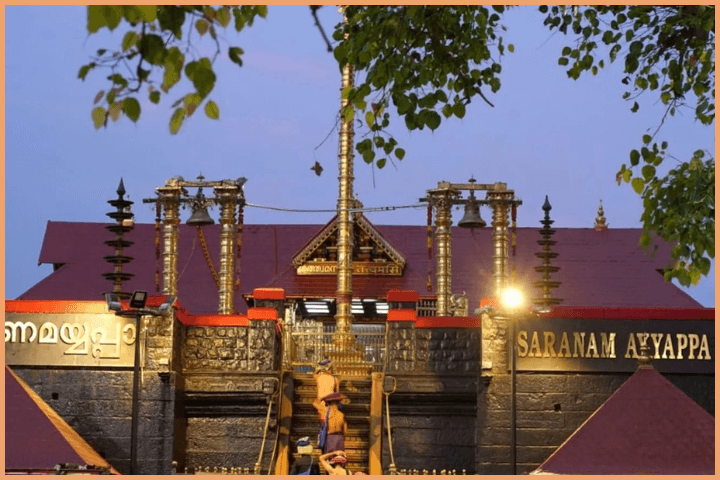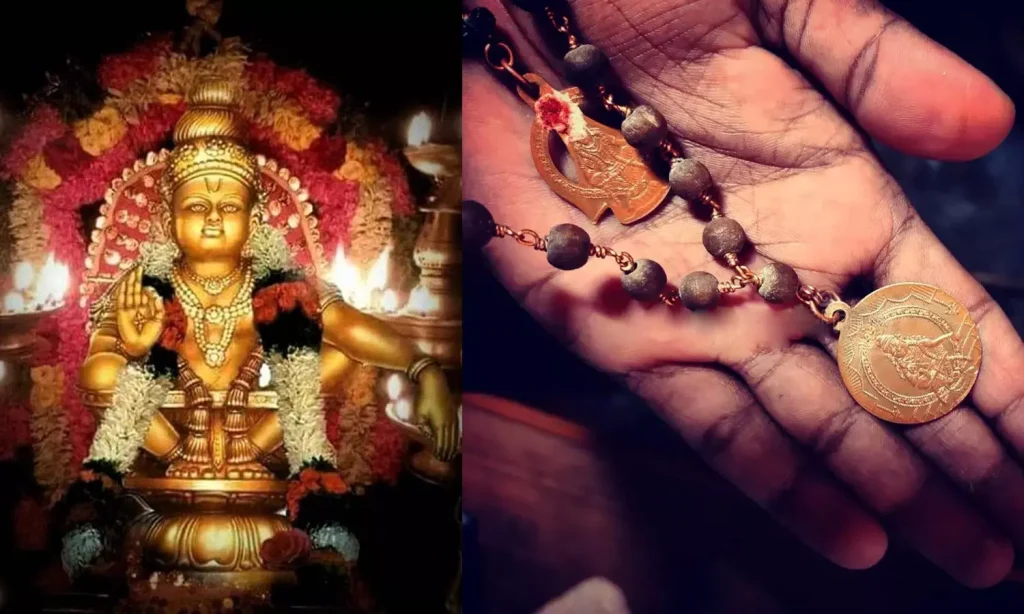The annual pilgrimage to Sabarimala, where millions of devotees worship Lord Ayyappan, is not just a journey to a holy shrine but a profound spiritual experience. Observing the 41-day Viratham (penance) and wearing the Ayyappa Mala prepares devotees physically, mentally, and spiritually to connect with the divine. But what makes this ritual so significant? Let us explore the deeper meanings, science, and spirituality behind this revered tradition.
Who is Lord Ayyappan? Understanding the Divine Connection
Lord Ayyappan is often perceived in various ways:
- A Siddhar (an enlightened being),
- A divine entity born from the third eye of Lord Shiva,
- A common man who attained divinity.
These interpretations highlight Ayyappan as a universal energy, transcending forms and names. In the broader sense, divinity is omnipresent, much like the vast ocean. The essence remains the same whether we identify it as Ayyappan, Shiva, Jesus, or any other deity.

The Justice of Sanibhagavan and the Uniqueness of Ayyappan
Sanibhagavan, the god of justice, is known to enforce karmic justice by rewarding or punishing based on one’s deeds. However, there are three figures in Hindu mythology believed to have transcended his influence:
- Lord Vinayaga
- Lord Hanuman
- Lord Ayyappan
Ayyappan’s transcendence over karma illustrates his role as a guide, empowering devotees to overcome challenges and accept life’s trials willingly.
The Science Behind Wearing the Ayyappa Mala
The practice of wearing the Ayyappa Mala and observing the 41-day Viratham involves significant discipline and self-control:
- No Footwear: Staying grounded to nature.
- Abstinence: Avoiding bad habits and indulgences like non-vegetarian food and intoxicants.
- Minimal Comfort: Using simple sleeping arrangements with no pillows or luxurious bedding.
- Walking for Travel: Encouraging physical endurance and humility.
These restrictions cut devotees from their comfort zones, fostering inner strength and resilience. The hardships faced during these days are self-imposed, which helps neutralize the karmic challenges that Sanibhagavan might impose later.
Embracing Problems with Courage and Faith
When devotees willingly embrace difficulties during the Viratham, they cultivate a mindset of acceptance and maturity. Instead of fearing problems, they approach them with courage and surrender to the divine. This process transforms their perspective:
- Problems are no longer seen as punishments but as lessons.
- They develop the strength to withstand life’s challenges.
By the end of the journey, they realize that divinity is not confined to a statue or a temple—it resides within them.
The Inner Light of Lord Ayyappan
The true essence of Lord Ayyappan lies within us, as a light of energy and wisdom. By chanting his name and meditating on his divine presence, devotees tune into the frequency of the sacred. This connection empowers them to succeed in life, with faith and surrender acting as their guiding principles.
The Celebration of Makara Jyothi
The annual Makara Jyothi festival at Sabarimala celebrates this divine realization. The mystical light in the sky symbolizes the divine energy that exists everywhere and within everyone. It serves as a reminder of the ultimate truth: that all beings are interconnected through the supreme power.
Wisdom Through Devotion
The practice of wearing the Ayyappa Mala and observing the 41-day Viratham teaches an invaluable lesson:
- Voluntary Acceptance: Facing challenges willingly with faith in the divine.
- Spiritual Growth: Transforming trials into opportunities for maturity and self-realization.
- Realizing the Divine Within: Recognizing that all divine energies reside within us.
This wisdom forms the foundation of the Ayyappa pilgrimage, making it a transformative journey of faith, discipline, and enlightenment.
Conclusion
The path of devotion to Lord Ayyappan is not merely a ritual but a profound journey of self-discovery. By embracing discipline, courage, and unwavering faith, devotees realize that the divine light of Ayyappan exists within them. The annual pilgrimage to Sabarimala, culminating in the celebration of Makara Jyothi, serves as a beacon of hope and spiritual fulfillment for millions, year after year.

